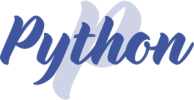Most programming language learning programs, at one time or another, will contain some sort of “road map”. This “road map” typically lists the things that you need to know and learn in order to complete the program. A well-designed programming course is generally broken down into smaller, bite size, units which are easily completed in less than a single sitting. Within these units, you should have all of the necessary knowledge to complete each lesson and proceed to the next. Once you’ve successfully completed the first module, you will be able to move on to the next one, and eventually complete the entire course.
One of the most important components of programming is the type system which deals with the “type” and “syntactical” expressions. It is not enough to have a vocabulary of common function names. Your type system needs to include the correct list of operators, precedence rules, and type conversions. Operators are those mentioned in the function signature and are used to produce some specific result. Precedence rules are the rules governing when a value is available to be stored, as well as the types of values that can be stored.
When you study programming at a superficial level, you will probably spend little time discussing types and precedence rules. However, it is an extremely important aspect of the new language which must be mastered if you wish to be a successful programmer. Learning how to correctly type a variable name or type a function will not only save you time, but also make you more versatile when it comes to working with other programmers. You will quickly learn the difference between using an operator and an expression, and if you are fortunate, you may even come across the occasional use of operators in your work.
Another very important component of programming is syntax. Just as with the types and precedence rules, proper syntax is a very important part of learning to program. Most programming languages will allow you to create simple programs with a few well-defined constructs. However, it is a different story with many more complex programming languages. A deep understanding of the syntax is essential to success as a programmer, and most programmers will benefit greatly from spending additional time understanding all of the various syntaxes.
Programming language features include both the syntax and the intended meaning of each word, phrase, and line of code. When these two concepts are mixed together, problems can become much more complex and even seemingly unsolvable. This is where programming language experts can come in. There is a lot to understand about syntax, and programming language experts should spend a lot of time analyzing the syntax of new languages. After they understand the basics of syntax, they can begin to explore the idioms that define each word and line of code.
The type system is the main way that a programming language operates. Each type corresponds to a particular type of object in the program, and these types can be user-defined or machine-defined. In the latter case, there is usually a primary type, which is used throughout the program to determine the values that any variable will hold. Variables can be labels, or they can be real objects. A variable named x will be mapped to a particular value of any real or virtual type, depending on the kind of operation that the programmer plans on making.
The next part of a programming language’s syntax deals with the use of symbols. Every symbol used in a programming language has a meaning, and programmers must learn to differentiate between them. For example, the keyword pointer can mean a variable of any type, or a memory address. A programmer must learn to master this distinction when creating programs.
Programmer’s who do not spend a great deal of time learning about syntax and idioms will probably find it easiest to learn from experts. However, these experts may also have a good idea how much syntax the new programmer needs to master. This is why online sources can sometimes be more useful than traditional textbooks. There are websites that provide information on how programmers can better communicate with one another. These websites often come free of charge, but some webmasters offer subscription services for a modest fee. Using online sources and textbooks together can greatly speed up the learning process for new programmers, while also providing a more comprehensive view of the programming language’s syntax and idioms.
